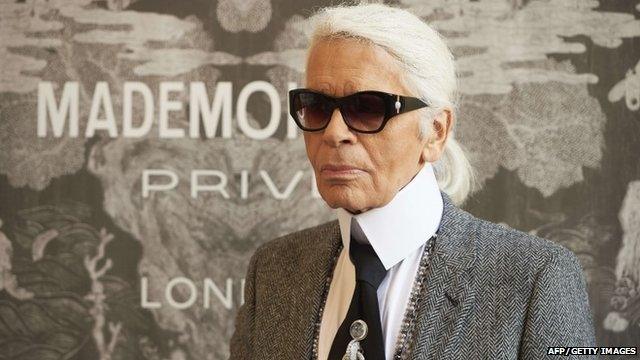Obituary: Karl Lagerfeld, Chanel's iconic fashion designer
- Published
His pet cat, Choupette, has amassed hundreds of thousands of followers online
There is a reason why Karl Lagerfeld, who has died at the age of 85, was called the emperor - or "Kaiser" in his native German - by fashion insiders.
After all, he was one of the world's most iconic fashion designers, at the heart of not one, not two, but three fashion houses.
The man who steered Chanel for more than 30 years combined artistic flair with business acumen which would see the Parisian label's sales reach $10bn (£7.7bn) in 2017.
But Lagerfeld's brand reached beyond his business ventures and into every aspect of his life.
He was instantly recognisable, thanks to his powdered white ponytail, dark glasses and high-collared white shirts. But then, what else would you expect of a man who once noted "anyone who wears jogging pants has lost control of their life".
"I'm a walking label," he told CNN in 2011. "My name is Labelfeld not Lagerfeld."
A star is born
Karl Lagerfeld's exact date of birth has been a contentious issue for some time. According to his eponymous website, he was born in 1938. However, others have settled on September 1933 as a more likely date of birth
Either way, he was born in Hamburg to a German mother and Swedish father, Otto, who imported condensed milk. Within a few years, they had moved to the town of Bad Bremstedt, where he would spend the war years.
Karl Lagerfeld often appeared at shows alongside his models
However, it seems a young Lagerfeld had no intention of staying in the country of his birth, having already got a taste for fashion - and a sense he might be destined for big things.
"As a child, a very young person, I had the feeling: 'It doesn't matter what you do - you're compelling!' I thought I was sacrosanct - wasted on dismal post-war Germany," Lagerfeld told German media.
In 1952 - having seen a Dior fashion show in Hamburg - the teenage Lagerfeld moved to Paris.
His big break came in 1954, when he won first prize for a sketch of a coat which was then made by Pierre Balmain. The designer, impressed, offered him a job as his assistant.
Just three years later, he was named Jean Patou's art director.
Then, in 1965, after a short stint with Chloe, he would begin a collaboration that was to last to the end of his life, with Italian fashion house Fendi.
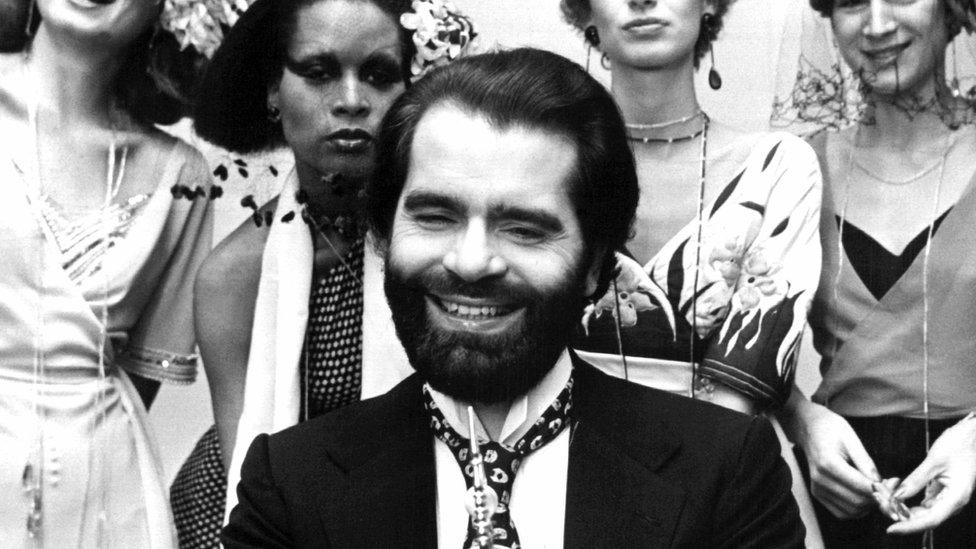
Karl Lagerfeld smiles for the camera after receiving an award in 1973
But it would be his role as Chanel's artistic director, beginning in 1983, which would truly thrust him into the limelight and create the fashion icon known for the next three decades.
However, he acknowledged the brand's founder may not have been thrilled with the direction he took the label.
"What I do Coco would have hated," he said. "The label has an image and it's up to me to update it. I do what she never did. I had to go from what Chanel was to what it should be, could be, what it had been to something else."
He still did not sit on his laurels. His appointment at Chanel was followed the next year by the creation of his own brand, Karl Lagerfeld.
Not happy with simply designing clothes, however, in 1987 he started to photograph his own campaigns.
But in 1989 tragedy struck: his partner of almost two decades, the French aristocrat Jacques de Bascher died of an Aids-related illness.
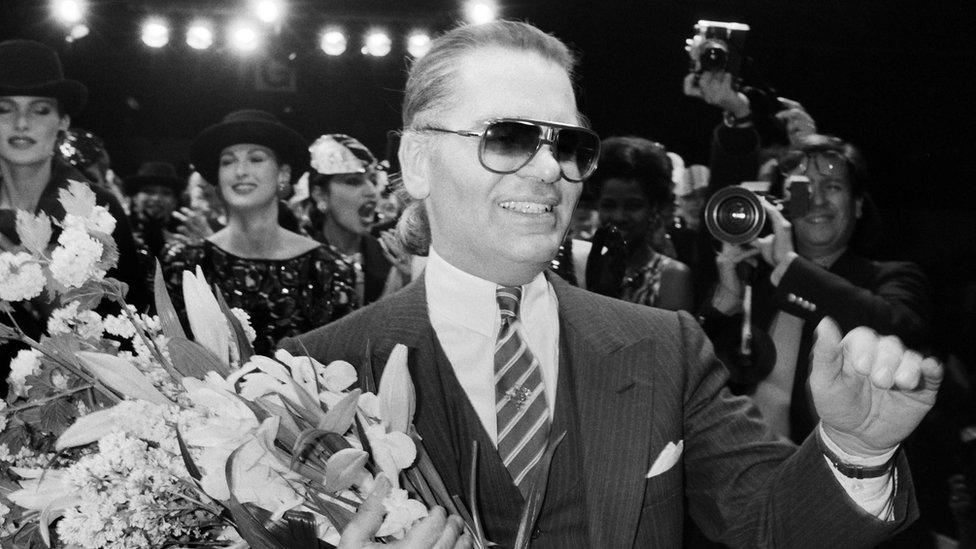
Lagerfeld following Chanel's ready-to-wear show in March 1984
According to his biographer, Alicia Drake, the death of de Bascher - who had cheated on Lagerfeld with his long-term rival Yves Saint Laurent - was followed by a period of weight gain and becoming infatuated with several young men.
The turn of the century saw Lagerfeld enter a new market: that of the diet industry. He proudly shed some 43kg (93lb) and turned his experience into a book, The 3D Diet, which would go on to sell thousands.
"I suddenly wanted to wear clothes designed by Hedi Slimane, external, who used to work for Saint Laurent and now creates the Dior Homme collections," he explained in The Telegraph in 2004.
That same year, he became the first fashion designer to collaborate with high street clothes store H&M.
More collaborations followed - not least, one designing three different bottles for Diet Coke, his drink of choice.
The collaboration's 2011 launch was a suitably glitzy affair, with Cosmopolitan reporting he was followed around all night "by a male model , externalcarrying a goblet of the drink atop a silver platter".
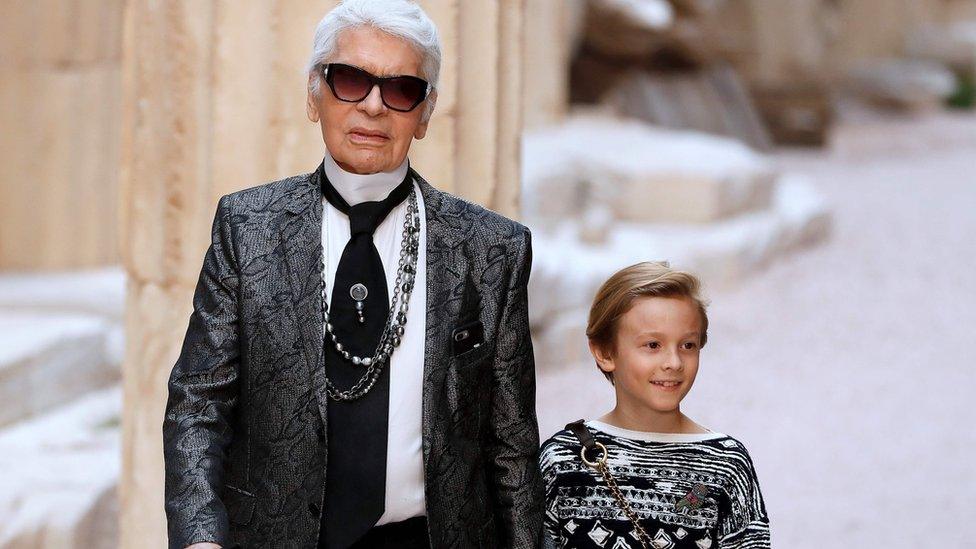
Walking the catwalk with his godson, Hudson Kroenig, in 2017
Despite his advancing years, he kept up to date with the changes in the world of celebrity, embracing the likes of the Kardashians, while last year he released a capsule collection with Kaia Gerber - daughter of 90s supermodel Cindy Crawford.
Selfies, however, were not something he could get on board with; "electronic masturbation" was his scathing assessment.
Age also failed to blunt his sharp tongue and, at times, shocking views, including attacking Germany's decision to open the door to Syrian refugees, external, and slamming the #metoo movement in an interview with Numero, external.
His pace of work did not slow up either, so when he missed a Chanel show in January - the first time he had ever done so - speculation began to mount over his health.
Lagerfeld's death was met with an outpouring of grief from the fashion world he had presided over for so many years. Many paid tribute to his genius and the legacy he was leaving behind.
But, it seems, Lagerfeld was less impressed with his legacy than those paying tribute. Two months before his death, the octogenarian dismissed rumours he was writing his memoirs.
"I have nothing to say," he said. "I'm actually trying to make sure that I won't be remembered."
- Published19 February 2019
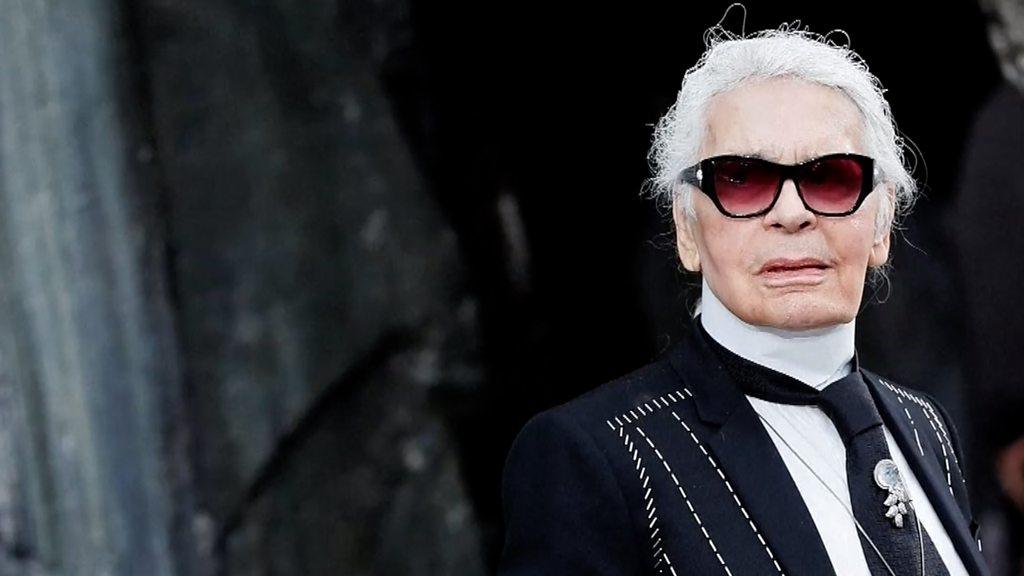
- Published19 February 2019
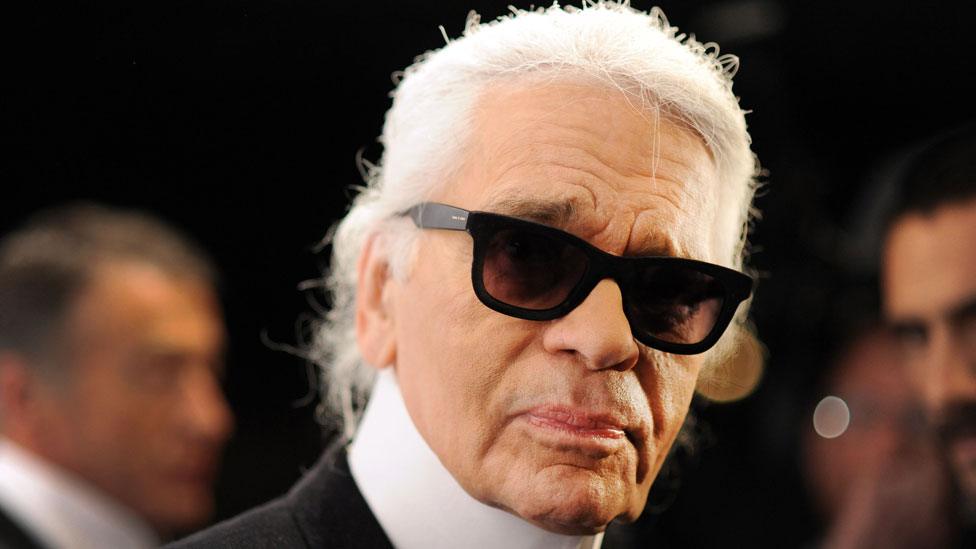
- Published14 October 2015
